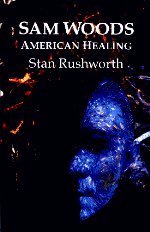After four years at my beloved Cabrillo College, walking away with an Associate Degree in Business Administration was the epitome of a bittersweet experience. It was here I learned how to maneuver through the public California academic system, file for financial aid, and pay gas in cash and leftover credit on my cards for my 95’ Ford F-150 to get back up the mountain and home for another day. However, it was here I made milestones and learned life’s most essential lessons, such as independence, going from nobody to somebody, becoming influential, having a voice, being self-aware, speaking to emote, and including above all else, leading life as a skeptic.
There are a handful of outstanding professors that I can describe endlessly from pure memory, but the one that hit me the hardest and resonates most closely with the intent of Cabrillo College is Professor Stan Rushworth. At age 5, he was raised by his grandfather, a mixedblood Tsalagi Indian man returning to the traditional ways in Oakdale, CA. His journey to Guatemala infused his understandings to a very complex level of how the true indigenous bloods of the lands we call divided countries now, of the tribes once founded from North America thrived through Central, South America, and further.
“I want to use my little corner here at Cabrillo to expose people to that material. Not only the knowledge that it carries, but the implications it has.”
Rushworth made a clear point of how these men, women, and children are not merely “Indians”; these Mayan Guatemalans, Inca, Aztec, Winnebagos, Cherokees, Apaches, Dakotas, Tsalagi, and other tribes are real people that have lived generations of ‘realities’ and perspectives the average person cannot fathom being put in our history books. There is history out there that further defines the diversity of our country today…the Natives also need to know how important their role lies in the future.
“I think U.S. policy can change when people become educated. Its not an easy change, but we know so very little about our own indigenous history, much less outside our borders,” he said. “Indigenous people are kind of invisible, really, to the American imagination. I think that has really horrifying repercussions today not only outside our borders but within our borders as well.”
From branding, brutally raping, and successfully dehumanizing the tribal people to a formal apology as loud as a ‘tree falling in the forest’. It was on Saturday, December 19, 2009; President Barack Obama signed the Native American Apology Resolution into law. No one heard a sound. It made no difference.
Moving forward, seek more knowledge to further understand modern political battles between tribes in Guatemala and the corruption of law. There is much to do with helping to achieve balance so that all cultures can live in peace. From the health of local reservation lands such a Pyramid Lake Paiute Tribe to the Mayan Guatemalans, it is important to be cognizant of the world’s affairs and how it may one day affect your ‘reality’ of this life.
“I’m just one guy with one opinion. I think American students should really do research and make their own decisions,” he said. “That’s my goal. Not to have people take my word for it, but look into it because there’s a connection between indigenous experience in the U.S. and throughout the Americas.”
Did this shed light on the depth of Native history ‘mixing’ with American ancestries? Do you feel learning more about the cultures of lands between tribes and modern political battles will influence you to take action, whether that is to pass on the word or personally help the cause? Please leave a comment below.
Stan Rushworth himself.
Stan Rushworth’s novel, full of imagery-rich short stories, prayers, and essays.
Related articles
- THE LONE RANGER: Johnny Depp Lived With A Tribe (goodmoviesbadmovies.com)
- Govt Council Raises Hopes for Improved U.S.-Tribal Relations (ipsnews.net)
- Native American murders up (morningstaronline.co.uk)
- http://drpongo.wordpress.com/tag/indigenous-rights/
- http://coyotenetworknews.com/
- Indian Child Welfare Act: Supreme Court ‘Saved Baby Veronica’ — But From What? (newamericamedia.org)
- First indigenous map of its kind; U.S. map displays “Our own names and locations” (unsettlingamerica.wordpress.com)


